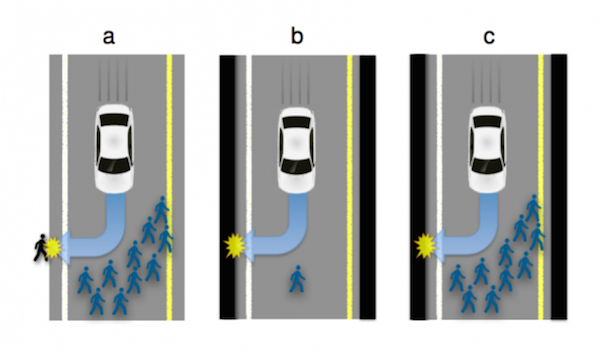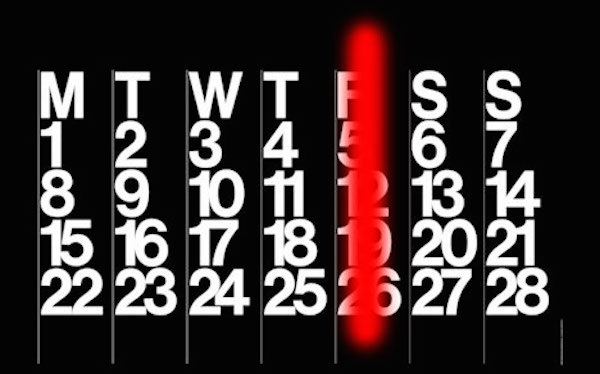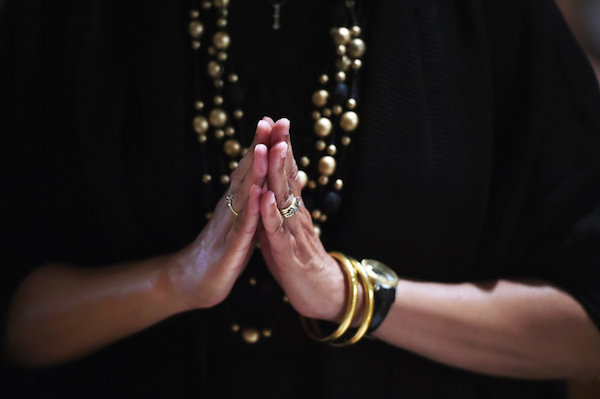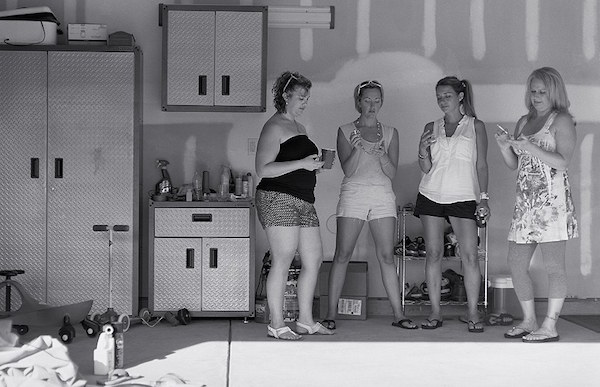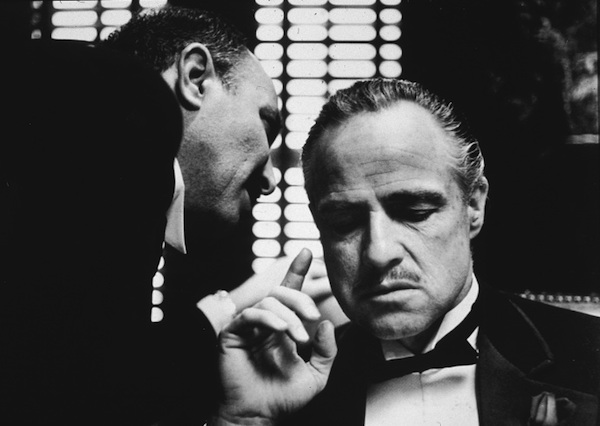
Or ignore this post and try a truly controversial topic: Is Scorsese overrated? (Yes, I know I’m asking this in the caption to a shot from Coppola.)
The Godfather and Goodfellas are classic guy movies. We quote them we reference them, their influence is undeniable (even though the latter is a bit over-rated; that’s right, I said it). The Sopranos changed television. Though we know the characters are criminals, we find an admirable dignity in their way of life, we excuse their actions because we’re seduced by their brazen individuality.
When The Wolf of Wall Street appeared in 2013, Scorsese told a story similar to that of Goodfellas, only set in a different kind of criminal enterprise. The same rise to power, the same brotherhood of exploitation and excess, the same kinds of mistakes leading to the same ultimate downfall (though in both cases, a sort of escape from true justice). And yet, Wolf made me viscerally angry. Despite any praise for craft, I sort of hated it, walking out that day. And it always bothered me a little that I couldn’t quite explain why I felt so disgusted by the Wall Street version of this story but entertained by the Mafia one.
Then I read Maria Konnikova’s piece in The New Yorker that basically spelled it out for me (though this excerpt only touches on the larger reasoning).
[P]sychological distance doesn’t require time. Under the right conditions, it can flourish in the moment. The psychological distance provided by “otherness” mimics the distance provided by time. It’s not a phenomenon unique to the mafia. It’s easy to glamorize warfare when there is no draft, or to idealize anyone whose life style seems risky and edgy without putting you, personally, at risk—spies and secret agents, rebels without a cause, the beatniks of Jack Kerouac’s “On The Road.” As long as there isn’t an easy-to-recall, factual reminder that brings us down out of the clouds of romanticism, we can glamorize at will. The lives of serial killers offer those concrete reminders: they lurk in neighborhoods like ours, threatening people who could be us. The mob is more abstract: it’s a shadowy, vague “organization” whose illicit dealings don’t really impinge on us. Abstraction lends itself to psychological distance; specificity kills it.
We grant mobsters dignity because we enjoy contemplating the general principles by which they are supposed to have lived: omertà, standing up to unfair authority, protecting your own.
Mobsters are far enough removed from most of our realities that we can see them as fictional, as other, and not feel personally offended, harmed, or threatened by them. Bankers, on the other hand, very recently did direct harm to most of the country. They’re too real to admire; or at least, they should be if you’re any sort of moral person.
What qualities are admirable in mobsters? Are there any that would actually apply to your life, or do they only serve as an escapist fantasy?
Do any of those apply to the popular idea of bankers as portrayed in culture? Are they actually that different, or as this article suggests, just degrees of separation from our actual realities?
If you had to be one, which would you want to be? Or rather, which would be the most fun on the one hand, but which would be the most practical life decision? How would you feel once you’d gone down that path?
